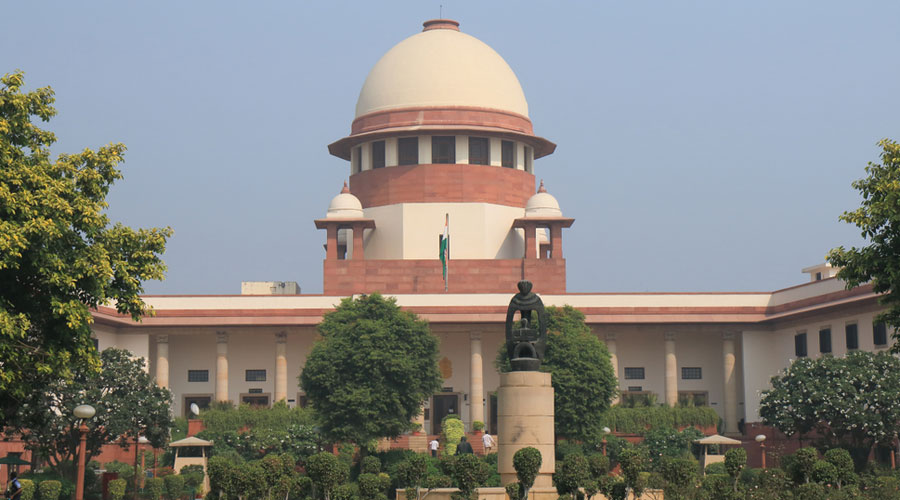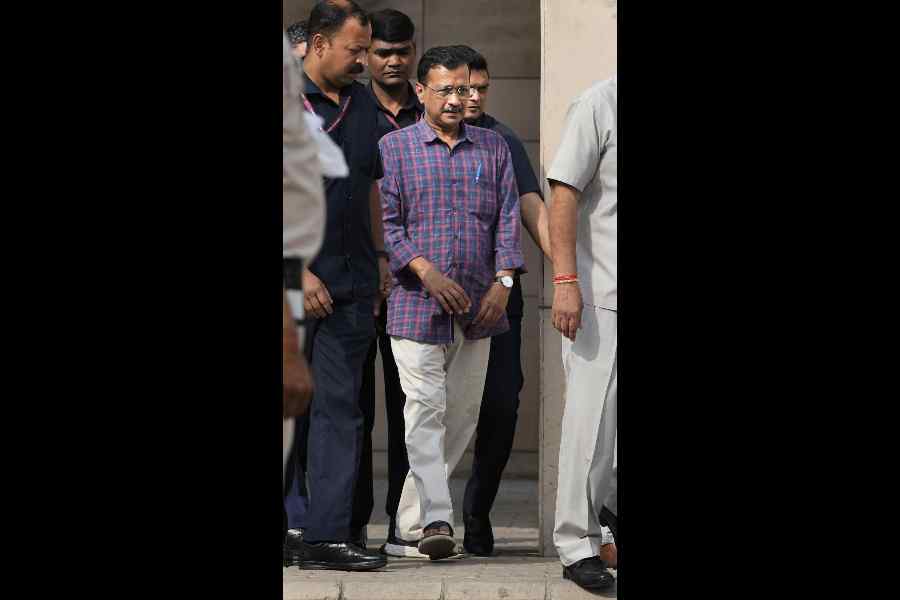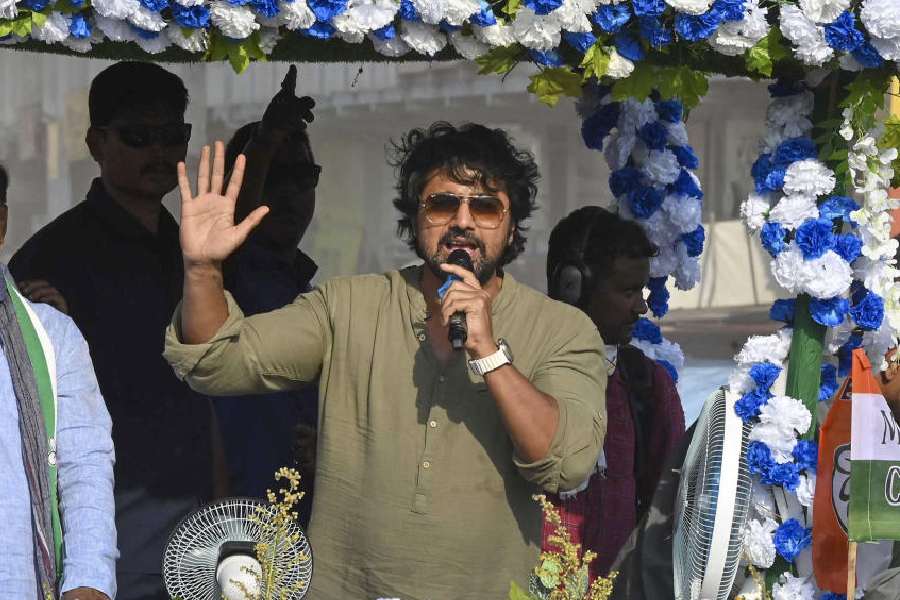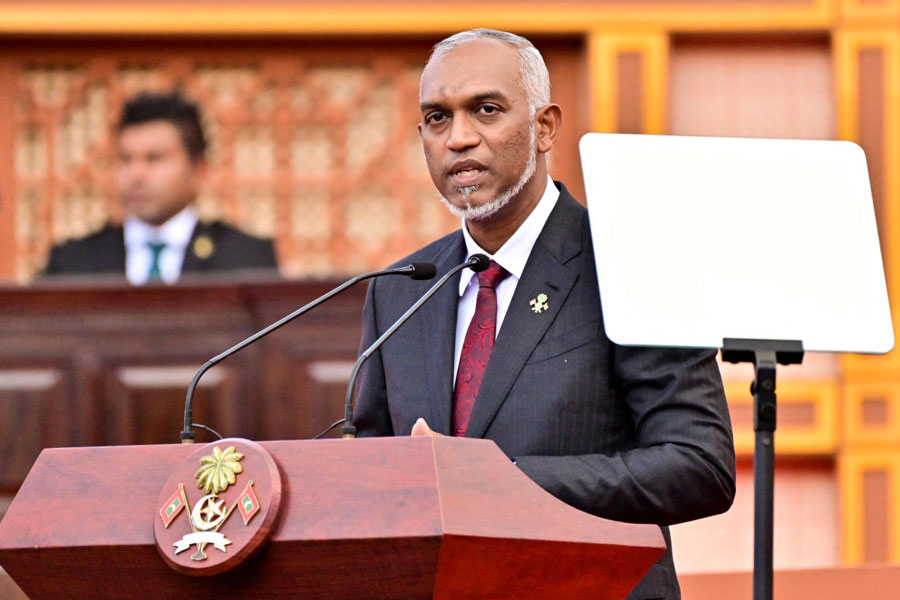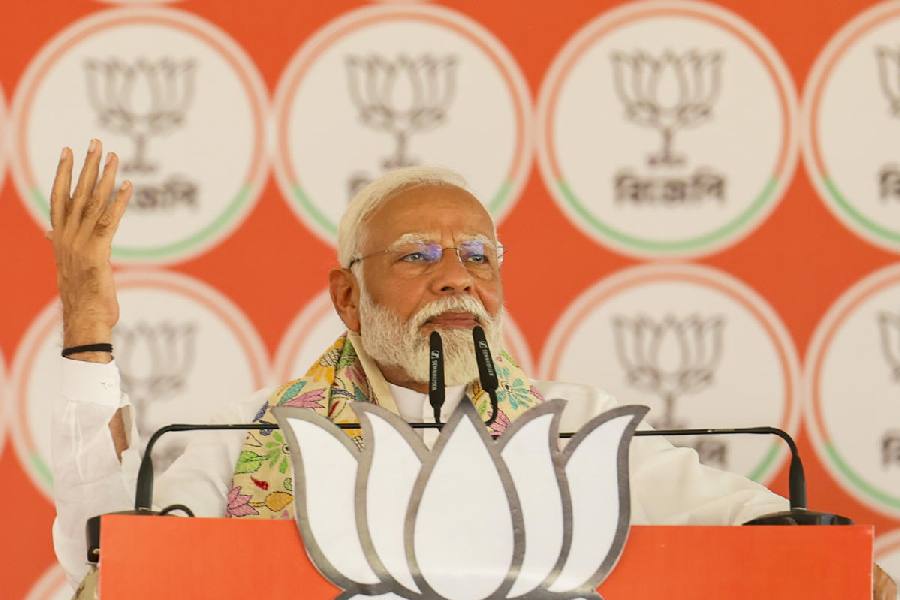The Centre on Monday urged the Supreme Court to take action on the court-appointed panel’s recommendation for action against certain officials responsible for falsely implicating eminent Isro scientist S. Nambi Narayanan in the 1994 alleged espionage case.
A bench headed by Chief Justice of India S.A. Bobde said it understands the importance of the matter but there was no need for any urgent listing as urged by solicitor-general Tushar Mehta.
“We understand the importance. But there is no urgency in it. Let’s have it next week,” the bench, also comprising Justices A.S. Bopanna and V. Ramasubramanian, told the government law officer after he sought an urgent listing of the matter preferably on Tuesday.
Mehta said the report by the high-level probe panel headed by retired apex court judge Justice D.K. Jain appointed by the Supreme Court to take erring cops to task for “anguish” caused to Narayan has been submitted. He said the sealed cover report be examined by the court on Tuesday for passing appropriate directions.
While urging the court that the matter be listed for hearing on Tuesday, Mehta said: “It’s a national level case…”
“Why tomorrow? We’ll list it next week,” CJI Bobde said. However, no specific date was fixed for the hearing.
On September 14, 2018, sending a strong message to police that “malicious prosecution” would not be tolerated, the apex court had awarded a staggering Rs 50 lakh compensation to Narayanan, earlier arrested by Kerala police in the alleged espionage case.
The apex court had also set up a committee headed by Justice Jain to determine the appropriate disciplinary action against the then investigating officers — S. Vijayan, the then inspector, special branch, Thiruvananthapuram city, K.K. Joshwa, the then deputy superintendent of police, CB-CID, Thiruvananthapuram and S. Siby Mathews, the then deputy inspector-general (crimes) — of the special investigation team.
The bench of then Chief Justice Dipak Misra, Justices A.M. Khanwilkar and D.Y. Chandrachud had further clarified that the Rs 50 lakh compensation to Narayanan would be in addition to the Rs 1 crore defamation suit he had filed in a Kerala civil court which is still pending. It for the scientist to decide whether he wants to pursue the civil suit or not, the apex court had said.
The apex court had passed the historic verdict on an appeal filed by Narayanan challenging a 2015 judgment of Kerala High Court refusing to order disciplinary action against the erring police officers for falsely implicating him and others in the case.
The CBI, which had earlier taken up the espionage case, had also stated in a report that no case was made against Narayanan and others. Instead the central agency, which had taken up the investigation on the request of the state government, had recommended disciplinary action against the erring police officers for malicious prosecution and custodial torture of Narayanan.
On January 20, 1994, an FIR was registered at Vanchiyoor police station against one Mariam Rasheeda, a Maldivian national, under Section 14 of the Foreigners Act, 1946, and paragraph 7 of the Foreigners Order for alleged espionage activities. Subsequently, in November 1994, cases under the Official Secrets Act were also registered in which another Maldivian national Fousiya Hasan, D. Sasikumaran, a scientist, and Narayanan, were all arrested. On December 4, 1994, upon a request from the state government the CBI took over the case.
After the investigation, the CBI submitted a report before the chief judicial magistrate, Ernakulam, under Section 173(2) of the CrPC stating that the evidence collected indicated that the allegations of espionage against the scientists at Isro and the other accused were not proved. The trial court, while accepting the CBI report on May 2, 1996, discharged all the accused.
On June 27, 1996, the Kerala government, being dissatisfied with the CBI report, issued a notification withdrawing the earlier one issued to entrust the matter to the agency and decided to conduct re-investigation of the case by the state police.
This notification for re-investigation was challenged by Narayanan before the high court, which on November 27, 1996, however, upheld the state’s decision to conduct a re-investigation. However, the Supreme Court on an appeal from Narayanan quashed the notification.
In the meantime, the National Human Rights Commission in 2001 had also awarded a compensation of Rs 10 lakh to Narayanan.
In 2015, Kerala High Court had also declined to order disciplinary action against the police officers, aggrieved by which Narayanan appealed in the apex court.
In his appeal, Narayanan who personally appeared in the case during the hearing and was also represented by a senior advocate argued that the prosecution launched against him by the Kerala police was malicious for two reasons, the first being that it had a catastrophic effect on his service as a leading and renowned scientist at Isro thereby smothering his career, life span, savings, honour, academic work as well as self-esteem.
Secondly, the arrest and incarceration for nearly 50 days had a total devastation of the peace of his entire family which is an ineffaceable individual loss, and the irreparable loss caused to the Isro space research programme of which he was a senior scientist.

